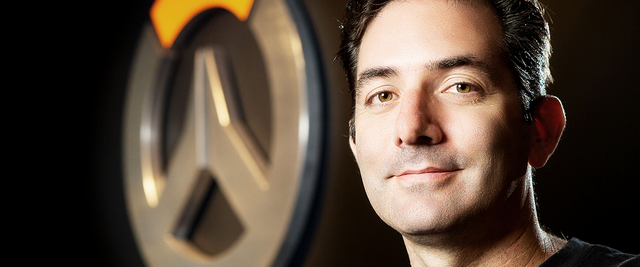Jeff Kaplan is Right — Toxicity is Everybody’s Problem
Overwatch has a toxicity problem. It’s been plaguing the community almost since launch, and it can be hard at times to see light at the end of this tunnel. That’s not to say it’s worse than it is in any other game, but Overwatch’s popularity combined with the what’s at stake in any given match can make those moments of grief that much worse.
The team at Blizzard is well aware of this issue, and has affirmed once again its commitment to reducing the problem children from the game. In a post on the game’s official forums, where user Roaming declares Overwatch’s reporting system a failure, Jeff Kaplan took the opportunity to address the issue once more:
You make some really good points and we agree. The reporting and punishment system is currently one of our prime focuses. You will be seeing a developer update about this very soon…
The full text can be found in the link above, and it’s definitely worth a read. In it, Kaplan explains the steps they’re taking in the short, medium, and long term to reduce toxicity in the game, as well as improving the reporting response time and feedback. It’s an encouraging statement that seems to address people’s fears about the future of the community, and people were mostly happy with the response. However, one comment at the end of his post has ruffled some feathers among the community (emphasis mine):
Like it or not, this is an “us, the OW community problem” and not just an “OW team problem”. For better or for worse, we’re in this together.
We’re working hard to make changes. I hope you all do too.
It’s a biting comment — one that many fans weren’t comfortable taking. Some were offended to be included in the same pool as toxic players, while others thought this shifted the blame away from the Overwatch team too much. But, as is usually the case, Jeff Kaplan is right.
It’s good to hear a developer have the stones to call on their own community to take responsibility for their actions. Too many people see toxicity in gaming communities and are quick to call it a failure of the developers, rather than a shortcoming of the community itself. While the team at Blizzard does have a responsibility to address abuse and griefing in their games, and it’s fair to say that they’ve been failing to do so, it isn’t their fault that it’s happening in the first place. It’s the player-base and their bad behaviors that have created this problem. Blizzard has been extremely responsive in stamping out bugs and exploits in the game, even as far as developing advanced tools to shut down aimbots, but player toxicity is not a technical problem — it’s a people problem.
It’s unfortunate the Overwatch team has to dedicate so much time and energy preventing people from being jerks online. It’s a Herculean effort that only garners attention when it’s failing. They should be spending their resources adding more game modes and heroes, not putting toddlers in time-out. Kaplan said it best in his post:
It really bums us out to spend so much time punishing people for being bad sports. We like making cool, fun game systems — that’s what we do for a living. But because people seem to lack self-control or because people like to abuse anonymity and free speech we’re put in a position of spending a tremendous amount of our time and resources policing the community.
So what’s the answer? I don’t know. The best answer for most game like Overwatch is to find a team of players you know and trust, and play with them whenever possible. Of course, this isn’t solving the problem as much as it is avoiding it altogether, but that’s about as much as we can ask for sometimes. I wish the best of luck to Blizzard in rolling out these practices and features, and hope that they’re successful in quarantining the most toxic offenders.
But maybe if a community doesn’t like a certain type of behavior in their game, they shouldn’t give hundreds of thousands of views to YouTube videos of people doing it. 🐸☕️

